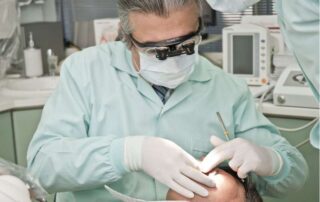The widespread application of trans-oral robotic surgery in HPV-related head and neck cancer: one size does not fit all
Over the past years, trans-oral robotic surgery (TORS) has gained momentum and wide applicability in the treatment of early-stage low-risk HPV-related oropharyngeal squamous cell carcinoma (OPSCC). This is in large part due to initial large single-institution series documenting good clinical outcomes using this approach. This culminated in the design and execution of the Eastern Cooperative Oncology Group trial 3311 (E3311) that provided a framework for applying this modality in the management of predominantly low-risk HPV-related OPSCC. Even though results from E3311 have been widely adopted as the guide to implementing TORS in this disease, it is noteworthy that significant care in planning surgical aspects of the trial implementation took place. Namely, sites were mandated to implement a quality assurance process through documentation of surgical credentialing. Vetting the accruing ECOG3311 surgeons appeared to minimize complications related to critical aspects of the study. In addition, one has to account for a certain selection bias when patients are enrolled in a clinical trial. If an experienced TORS surgeon has not assessed the patient as a surgical candidate and documented eligibility, there is an increased likelihood of affecting the reported rate of complications. Complications from TORS can be major, such as the rare and idiosyncratic yet real risk for severe postoperative bleeding, which puts patients at risk of death without feeding arterial vessel ligation. Among other complications that have not been systematically tracked in prior studies is reduced swallowing function, which may vary with volume and location of resected tissue, as well as availability and adherence [...]

